This post is about all the book club sets (8 or more copies of the book) we have to offer in the Colorado Book Club Resource that also have screen adaptations. You can find a more comprehensive list in the catalog.
Scroll down to go right to my suggested titles with adaptations, or stick around for my attempt to answer the question in the title with some introductory thoughts.
Books = good! Film = never as good?
How often have you heard it said that the movie is “never as good” as the book that inspired it? Can you name any TV series or movies that you hands-down prefer to the book they are adapted from? Maybe a few memorable adaptations come to mind. But a lot? Book lovers tend to prefer the original books to the point of being defensive of them. We don’t expect adaptations to nearly come close to the book in terms of quality, depth, impact… Where does this bias come from, that the film version can never be as worthwhile as the book? Perhaps it’s confirmation bias, with each new release let-down always proving us right. Or, one answer could lie in the idea that all passive entertainment is bad, whereas all reading is “active” and therefore better for us all.
That’s just, like, your opinion
In that latter view, books (though, not all books) are near the top of some pyramid of more worthwhile ways to pass time in a culture full of distractions. It is true that most of us spend little time reading on a given day compared to other media. Times change. A hundred years ago, people worried about the dangers of excessive reading: “mental intoxication, consequent upon too great indulgence in the printed page, is as bad as physical intoxication,” one journalist wrote. Would an editor even remotely consider printing that today when multimedia entertainment dominates? With AI’s advancing march, there is much more handwringing about us being turned off print now. But let’s remember that film – nothing less than the miraculous art of light and sound – is a well-established art form of its own and there is simply no need to have mediums compete. We book lovers are right in recognizing that the two mediums don’t neatly compare, especially when both markets are so oversaturated. So we should be careful when we do compare them!
Managing expectations
I suppose it has to do with our expectations, as with so much in life. We feel betrayed when an adaptation changes the original material in some essential way (they always do), even if we love movies and TV. We are expecting something else – though we are always let down, we still hope for it – a faithful encapsulation of the original book.
It needn’t be that way – adaptations can be worth it. And though it’s sacrilege to suggest it, adaptations can even improve on a book. Few books are perfect, and few films come close to perfection, but adaptations can offer a sort of rethinking.
Aaand action!
The answer, in my view, is yes: book clubs should try incorporating screen adaptations into their discussions. Why not? Some book clubs routinely work that way to great success. Often, adaptations come up organically anyway and can be a nice way to inject interest or humor into a book discussion. Love them or hate them, screen adaptations are a sure way to introduce some spice to your book club. Yes, some adaptations are horrible. But, rest assured – that is excellent fodder for an exciting discussion.
Erasure, by Percival Everett (Adapted as American Fiction in 2024)
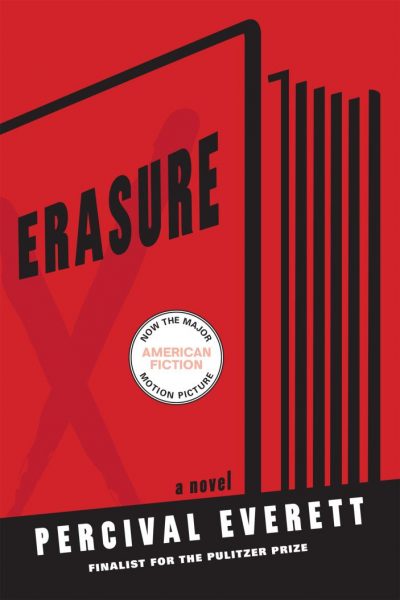 Thelonious “Monk” Ellison’s writing career has bottomed out: his latest manuscript has been rejected by seventeen publishers, which stings all the more because his previous novels have been “critically acclaimed.” He seethes on the sidelines of the literary establishment as he watches the meteoric success of We’s Lives in Da Ghetto, a first novel by a woman who once visited “some relatives in Harlem for a couple of days.” Meanwhile, Monk struggles with real family tragedies—his aged mother is fast succumbing to Alzheimer’s, and he still grapples with the reverberations of his father’s suicide seven years before.
Thelonious “Monk” Ellison’s writing career has bottomed out: his latest manuscript has been rejected by seventeen publishers, which stings all the more because his previous novels have been “critically acclaimed.” He seethes on the sidelines of the literary establishment as he watches the meteoric success of We’s Lives in Da Ghetto, a first novel by a woman who once visited “some relatives in Harlem for a couple of days.” Meanwhile, Monk struggles with real family tragedies—his aged mother is fast succumbing to Alzheimer’s, and he still grapples with the reverberations of his father’s suicide seven years before.
In his rage and despair, Monk dashes off a novel meant to be an indictment of Juanita Mae Jenkins’s bestseller. He doesn’t intend for My Pafology to be published, let alone taken seriously, but it is—under the pseudonym Stagg R. Leigh—and soon it becomes the Next Big Thing. How Monk deals with the personal and professional fallout galvanizes this audacious, hysterical, and quietly devastating novel.
Station Eleven, by Emily St. John Mandel (Adapted as a TV series in 2021)
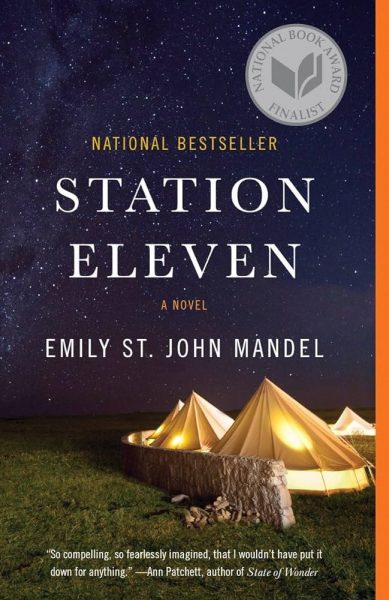 An audacious, darkly glittering novel set in the eerie days of civilization’s collapse—the spellbinding story of a Hollywood star, his would-be savior, and a nomadic group of actors roaming the scattered outposts of the Great Lakes region, risking everything for art and humanity.
An audacious, darkly glittering novel set in the eerie days of civilization’s collapse—the spellbinding story of a Hollywood star, his would-be savior, and a nomadic group of actors roaming the scattered outposts of the Great Lakes region, risking everything for art and humanity.
Kirsten Raymonde will never forget the night Arthur Leander, the famous Hollywood actor, had a heart attack on stage during a production of King Lear. That was the night when a devastating flu pandemic arrived in the city, and within weeks, civilization as we know it came to an end.
Rebecca, by Daphne Du Maurier (Adapted numerous times, including 1940 and 2020 movies)
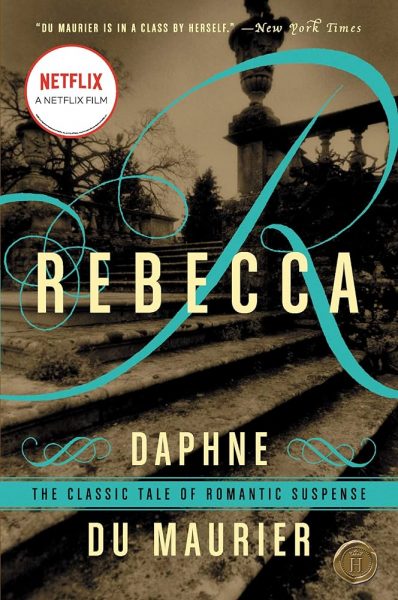 “Last Night I Dreamt I went to Manderley Again…”
“Last Night I Dreamt I went to Manderley Again…”
With these words, the reader is ushered into an isolated gray stone mansion on the windswept Cornish coast, as the second Mrs. Maxim de Winter recalls the chilling events that transpired as she began her new life as the young bride of a husband she barely knew. For in every corner of every room were phantoms of a time dead but not forgotten—a past devotedly preserved by the sinister housekeeper, Mrs. Danvers: a suite immaculate and untouched, clothing laid out and ready to be worn, but not by any of the great house’s current occupants. With an eerie presentiment of evil tightening her heart, the second Mrs. de Winter walked in the shadow of her mysterious predecessor, determined to uncover the darkest secrets and shattering truths about Maxim’s first wife—the late and hauntingly beautiful Rebecca.
The Martian, by Andy Weir (Adapted in 2015)
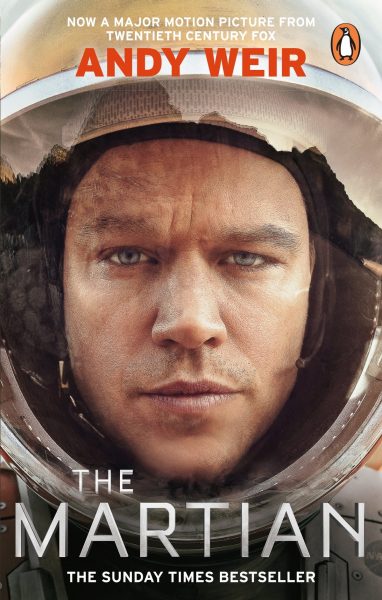 Six days ago, astronaut Mark Watney became one of the first people to walk on Mars.
Six days ago, astronaut Mark Watney became one of the first people to walk on Mars.
Now, he’s sure he’ll be the first person to die there.
After a dust storm nearly kills him and forces his crew to evacuate while thinking him dead, Mark finds himself stranded and completely alone with no way to even signal Earth that he’s alive—and even if he could get word out, his supplies would be gone long before a rescue could arrive.
Chances are, though, he won’t have time to starve to death. The damaged machinery, unforgiving environment, or plain-old “human error” are much more likely to kill him first.
But Mark isn’t ready to give up yet. Drawing on his ingenuity, his engineering skills—and a relentless, dogged refusal to quit—he steadfastly confronts one seemingly insurmountable obstacle after the next. Will his resourcefulness be enough to overcome the impossible odds against him?
Possession, by A. S. Byatt (Adapted in 2002)
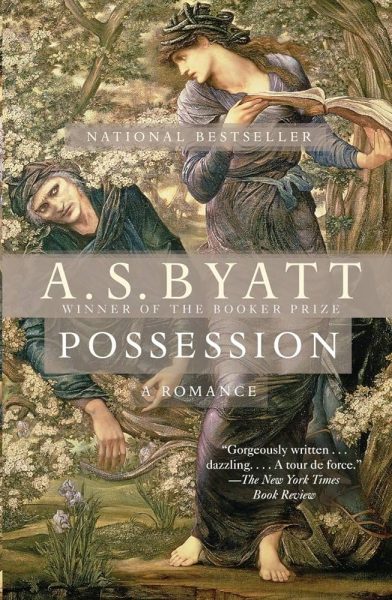 As a pair of young scholars researching the lives of two Victorian poets uncover their letters, journals, and poems, and trace their movements from London to Yorkshire-and from spiritualist seances to the fairy-haunted far west of Brittany-an extraordinary counterpoint of passions & ideas emerges. An exhilarating novel of wit and romance, an intellectual mystery, and a triumphant love story. This tale of a pair of young scholars researching the lives of two Victorian poets became a huge bookseller favorite, and then on to national bestellerdom. Winner of England’s Booker Prize, a coast-to-coast bestseller, and the literary sensation of the year, Possession is a novel of wit and romance, at once an intellectual mystery and a triumphant love story. Revolving around a pair of young scholars researching the lives of two Victorian poets, Byatt creates a haunting counterpoint of passion and ideas.
As a pair of young scholars researching the lives of two Victorian poets uncover their letters, journals, and poems, and trace their movements from London to Yorkshire-and from spiritualist seances to the fairy-haunted far west of Brittany-an extraordinary counterpoint of passions & ideas emerges. An exhilarating novel of wit and romance, an intellectual mystery, and a triumphant love story. This tale of a pair of young scholars researching the lives of two Victorian poets became a huge bookseller favorite, and then on to national bestellerdom. Winner of England’s Booker Prize, a coast-to-coast bestseller, and the literary sensation of the year, Possession is a novel of wit and romance, at once an intellectual mystery and a triumphant love story. Revolving around a pair of young scholars researching the lives of two Victorian poets, Byatt creates a haunting counterpoint of passion and ideas.
The Autobiography of Malcolm X (Adapted as Malcom X in 1992)
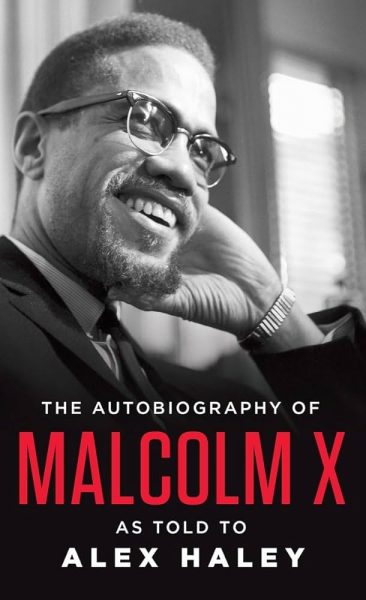 In the searing pages of this classic autobiography, originally published in 1964, Malcolm X, the Muslim leader, firebrand, and anti-integrationist, tells the extraordinary story of his life and the growth of the Black Muslim movement. His fascinating perspective on the lies and limitations of the American Dream, and the inherent racism in a society that denies its nonwhite citizens the opportunity to dream, gives extraordinary insight into the most urgent issues of our own time. The Autobiography of Malcolm X stands as the definitive statement of a movement and a man whose work was never completed but whose message is timeless. It is essential reading for anyone who wants to understand America.
In the searing pages of this classic autobiography, originally published in 1964, Malcolm X, the Muslim leader, firebrand, and anti-integrationist, tells the extraordinary story of his life and the growth of the Black Muslim movement. His fascinating perspective on the lies and limitations of the American Dream, and the inherent racism in a society that denies its nonwhite citizens the opportunity to dream, gives extraordinary insight into the most urgent issues of our own time. The Autobiography of Malcolm X stands as the definitive statement of a movement and a man whose work was never completed but whose message is timeless. It is essential reading for anyone who wants to understand America.
One Flew Over the Cuckoo’s Nest, by Ken Kesey (Adapted in 1975)
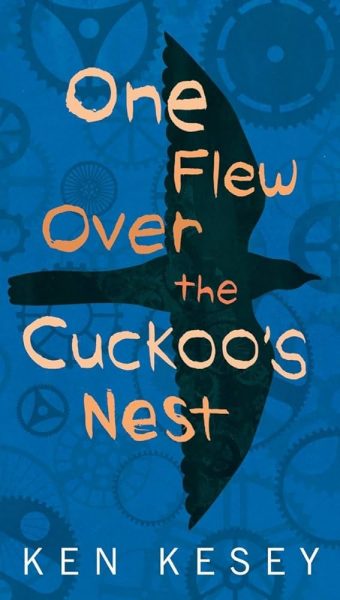 Boisterous, ribald, and ultimately shattering, Ken Kesey’s One Flew Over the Cuckoo’s Nest has left an indelible mark on the literature of our time. Turning conventional notions of sanity and insanity on their heads, the novel tells the unforgettable story of a mental ward and its inhabitants, especially tyrannical Big Nurse Ratched and Randle Patrick McMurphy, the brawling, fun-loving new inmate who resolves to oppose her. We see the story through the eyes of Chief Bromden, the seemingly mute half-Indian patient who witnesses and understands McMurphy’s heroic attempt to do battle with the powers that keep them all imprisoned. Hailed upon its publication as “a glittering parable of good and evil” (The New York Times Book Review) and “a roar of protest against middlebrow society’s Rules and the invisible Rulers who enforce them” (Time), Kesey’s powerful book went on to sell millions of copies and remains as bracing and insightful today as when it was first released. This new deluxe hardcover edition commemorates the fiftieth anniversary of the original publication of the novel on February 1, 1962, and will be a must have for any literature lover.
Boisterous, ribald, and ultimately shattering, Ken Kesey’s One Flew Over the Cuckoo’s Nest has left an indelible mark on the literature of our time. Turning conventional notions of sanity and insanity on their heads, the novel tells the unforgettable story of a mental ward and its inhabitants, especially tyrannical Big Nurse Ratched and Randle Patrick McMurphy, the brawling, fun-loving new inmate who resolves to oppose her. We see the story through the eyes of Chief Bromden, the seemingly mute half-Indian patient who witnesses and understands McMurphy’s heroic attempt to do battle with the powers that keep them all imprisoned. Hailed upon its publication as “a glittering parable of good and evil” (The New York Times Book Review) and “a roar of protest against middlebrow society’s Rules and the invisible Rulers who enforce them” (Time), Kesey’s powerful book went on to sell millions of copies and remains as bracing and insightful today as when it was first released. This new deluxe hardcover edition commemorates the fiftieth anniversary of the original publication of the novel on February 1, 1962, and will be a must have for any literature lover.
1984, by George Orwell (Adapted numerous times, including in 1984)
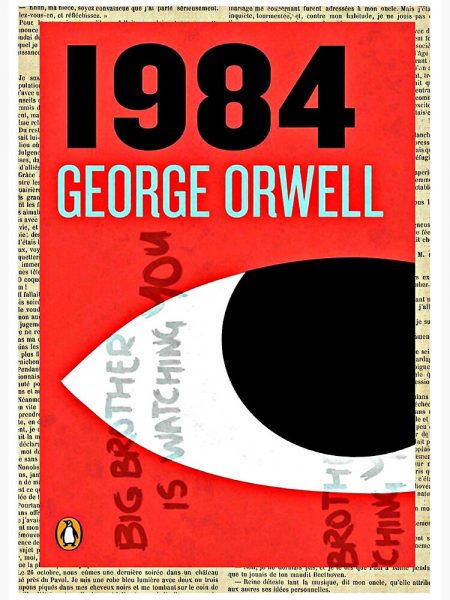 In 1984, London is a grim city in the totalitarian state of Oceania where Big Brother is always watching you and the Thought Police can practically read your mind. Winston Smith is a man in grave danger for the simple reason that his memory still functions. Drawn into a forbidden love affair, Winston finds the courage to join a secret revolutionary organization called The Brotherhood, dedicated to the destruction of the Party. Together with his beloved Julia, he hazards his life in a deadly match against the powers that be.
In 1984, London is a grim city in the totalitarian state of Oceania where Big Brother is always watching you and the Thought Police can practically read your mind. Winston Smith is a man in grave danger for the simple reason that his memory still functions. Drawn into a forbidden love affair, Winston finds the courage to join a secret revolutionary organization called The Brotherhood, dedicated to the destruction of the Party. Together with his beloved Julia, he hazards his life in a deadly match against the powers that be.
Lionel Trilling said of Orwell’s masterpiece “1984 is a profound, terrifying, and wholly fascinating book. It is a fantasy of the political future, and like any such fantasy, serves its author as a magnifying device for an examination of the present.” Though the year 1984 now exists in the past, Orwell’s novel remains an urgent call for the individual willing to speak truth to power.
In Cold Blood, by Truman Capote (adapted several times, most recently in 2005 and 2006)
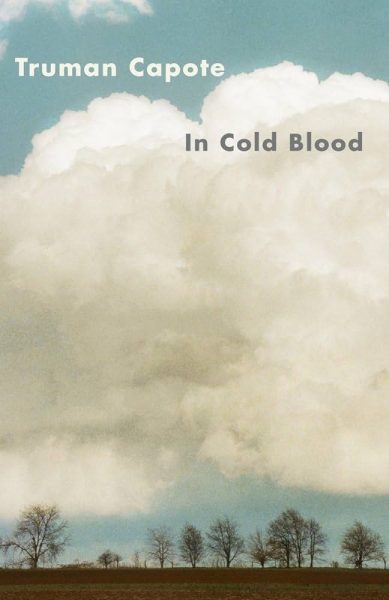 Truman Capote’s masterpiece, In Cold Blood, created a sensation when it was first published, serially, in The New Yorker in 1965. The intensively researched, atmospheric narrative of the lives of the Clutter family of Holcomb, Kansas, and of the two men, Richard Eugene Hickock and Perry Edward Smith, who brutally killed them on the night of November 15, 1959, is the seminal work of the “new journalism.” Perry Smith is one of the great dark characters of American literature, full of contradictory emotions. “I thought he was a very nice gentleman,” he says of Herb Clutter. “Soft-spoken. I thought so right up to the moment I cut his throat.” Told in chapters that alternate between the Clutter household and the approach of Smith and Hickock in their black Chevrolet, then between the investigation of the case and the killers’ flight, Capote’s account is so detailed that the reader comes to feel almost like a participant in the events.
Truman Capote’s masterpiece, In Cold Blood, created a sensation when it was first published, serially, in The New Yorker in 1965. The intensively researched, atmospheric narrative of the lives of the Clutter family of Holcomb, Kansas, and of the two men, Richard Eugene Hickock and Perry Edward Smith, who brutally killed them on the night of November 15, 1959, is the seminal work of the “new journalism.” Perry Smith is one of the great dark characters of American literature, full of contradictory emotions. “I thought he was a very nice gentleman,” he says of Herb Clutter. “Soft-spoken. I thought so right up to the moment I cut his throat.” Told in chapters that alternate between the Clutter household and the approach of Smith and Hickock in their black Chevrolet, then between the investigation of the case and the killers’ flight, Capote’s account is so detailed that the reader comes to feel almost like a participant in the events.
Fight Club, by Chuck Palahniuk (Adapted in 1999)
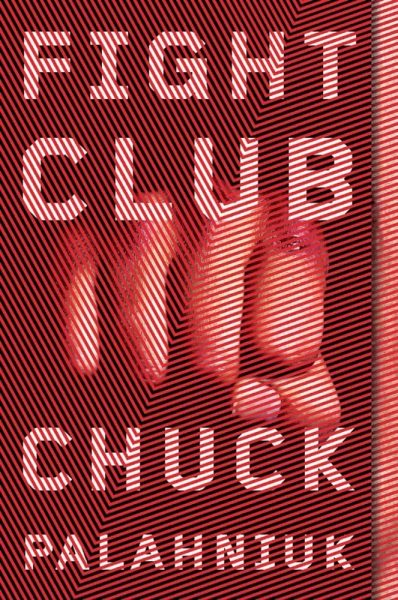 The first rule about fight club is you don’t talk about fight club.
The first rule about fight club is you don’t talk about fight club.
Chuck Palahniuk showed himself to be his generation’s most visionary satirist in this, his first book. Fight Club’s estranged narrator leaves his lackluster job when he comes under the thrall of Tyler Durden, an enigmatic young man who holds secret after-hours boxing matches in the basements of bars. There, two men fight “as long as they have to.” This is a gloriously original work that exposes the darkness at the core of our modern world.
The Haunting of Hill House, by Shirley Jackson (Adapted in 2018)
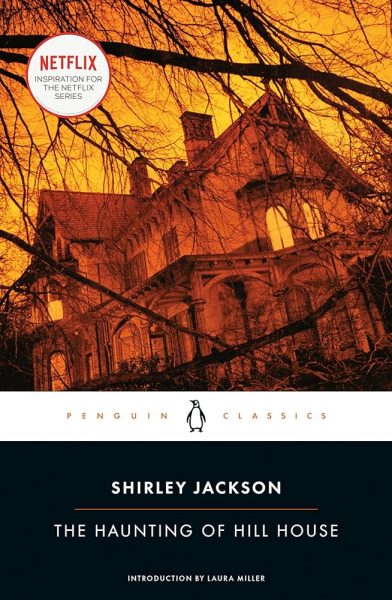 The classic supernatural thriller by an author who helped define the genre. First published in 1959, Shirley Jackson’s The Haunting of Hill House has been hailed as a perfect work of unnerving terror. It is the story of four seekers who arrive at a notoriously unfriendly pile called Hill House: Dr. Montague, an occult scholar looking for solid evidence of a “haunting;’ Theodora, his lighthearted assistant; Eleanor, a friendless, fragile young woman well acquainted with poltergeists; and Luke, the future heir of Hill House. At first, their stay seems destined to be merely a spooky encounter with inexplicable phenomena. But Hill House is gathering its powers—and soon it will choose one of them to make its own.
The classic supernatural thriller by an author who helped define the genre. First published in 1959, Shirley Jackson’s The Haunting of Hill House has been hailed as a perfect work of unnerving terror. It is the story of four seekers who arrive at a notoriously unfriendly pile called Hill House: Dr. Montague, an occult scholar looking for solid evidence of a “haunting;’ Theodora, his lighthearted assistant; Eleanor, a friendless, fragile young woman well acquainted with poltergeists; and Luke, the future heir of Hill House. At first, their stay seems destined to be merely a spooky encounter with inexplicable phenomena. But Hill House is gathering its powers—and soon it will choose one of them to make its own.
All the Light We Cannot See, by Anthony Doerr (Adapted in 2023)
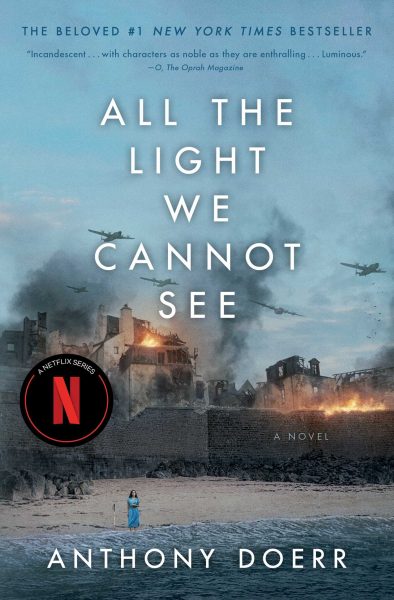 Marie-Laure lives with her father in Paris near the Museum of Natural History where he works as the master of its thousands of locks. When she is six, Marie-Laure goes blind and her father builds a perfect miniature of their neighborhood so she can memorize it by touch and navigate her way home. When she is twelve, the Nazis occupy Paris, and father and daughter flee to the walled citadel of Saint-Malo, where Marie-Laure’s reclusive great uncle lives in a tall house by the sea. With them they carry what might be the museum’s most valuable and dangerous jewel.
Marie-Laure lives with her father in Paris near the Museum of Natural History where he works as the master of its thousands of locks. When she is six, Marie-Laure goes blind and her father builds a perfect miniature of their neighborhood so she can memorize it by touch and navigate her way home. When she is twelve, the Nazis occupy Paris, and father and daughter flee to the walled citadel of Saint-Malo, where Marie-Laure’s reclusive great uncle lives in a tall house by the sea. With them they carry what might be the museum’s most valuable and dangerous jewel.
In a mining town in Germany, the orphan Werner grows up with his younger sister, enchanted by a crude radio they find. Werner becomes an expert at building and fixing these crucial new instruments, a talent that wins him a place at a brutal academy for Hitler Youth, then a special assignment to track the Resistance. More and more aware of the human cost of his intelligence, Werner travels through the heart of the war and, finally, into Saint-Malo, where his story and Marie-Laure’s converge.
Lessons in Chemistry, by Bonnie Garmus (Adapted in 2023)
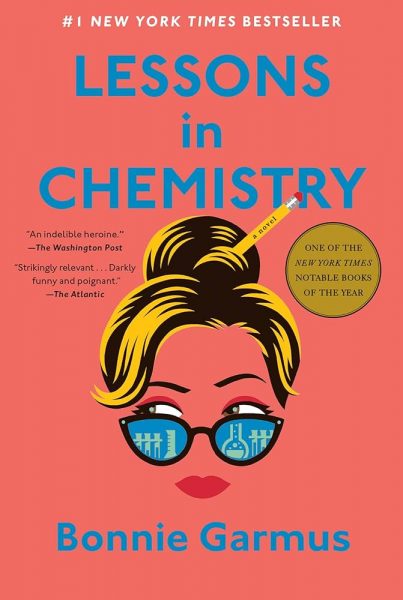 Chemist Elizabeth Zott is not your average woman. In fact, Elizabeth Zott would be the first to point out that there is no such thing as an average woman. But it’s the early 1960s and her all-male team at Hastings Research Institute takes a very unscientific view of equality. Except for one: Calvin Evans; the lonely, brilliant, Nobel–prize nominated grudge-holder who falls in love with—of all things—her mind. True chemistry results. But like science, life is unpredictable. Which is why a few years later Elizabeth Zott finds herself not only a single mother, but the reluctant star of America’s most beloved cooking show Supper at Six. Elizabeth’s unusual approach to cooking (“combine one tablespoon acetic acid with a pinch of sodium chloride”) proves revolutionary. But as her following grows, not everyone is happy. Because as it turns out, Elizabeth Zott isn’t just teaching women to cook. She’s daring them to change the status quo. Laugh-out-loud funny, shrewdly observant, and studded with a dazzling cast of supporting characters, Lessons in Chemistry is as original and vibrant as its protagonist.
Chemist Elizabeth Zott is not your average woman. In fact, Elizabeth Zott would be the first to point out that there is no such thing as an average woman. But it’s the early 1960s and her all-male team at Hastings Research Institute takes a very unscientific view of equality. Except for one: Calvin Evans; the lonely, brilliant, Nobel–prize nominated grudge-holder who falls in love with—of all things—her mind. True chemistry results. But like science, life is unpredictable. Which is why a few years later Elizabeth Zott finds herself not only a single mother, but the reluctant star of America’s most beloved cooking show Supper at Six. Elizabeth’s unusual approach to cooking (“combine one tablespoon acetic acid with a pinch of sodium chloride”) proves revolutionary. But as her following grows, not everyone is happy. Because as it turns out, Elizabeth Zott isn’t just teaching women to cook. She’s daring them to change the status quo. Laugh-out-loud funny, shrewdly observant, and studded with a dazzling cast of supporting characters, Lessons in Chemistry is as original and vibrant as its protagonist.
No. 1 Ladies’ Detective Agency, by Alexander McCall Smith (Adapted in 2008)
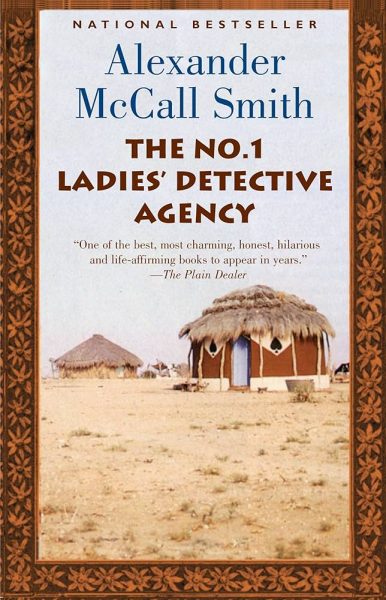 This first novel in Alexander McCall Smith’s widely acclaimed The No. 1 Ladies Detective Agency series tells the story of the delightfully cunning and enormously engaging Precious Ramotswe, who is drawn to her profession to “help people with problems in their lives.” Immediately upon setting up shop in a small storefront in Gaborone, she is hired to track down a missing husband, uncover a con man, and follow a wayward daughter. But the case that tugs at her heart, and lands her in danger, is a missing eleven-year-old boy, who may have been snatched by witchdoctors.
This first novel in Alexander McCall Smith’s widely acclaimed The No. 1 Ladies Detective Agency series tells the story of the delightfully cunning and enormously engaging Precious Ramotswe, who is drawn to her profession to “help people with problems in their lives.” Immediately upon setting up shop in a small storefront in Gaborone, she is hired to track down a missing husband, uncover a con man, and follow a wayward daughter. But the case that tugs at her heart, and lands her in danger, is a missing eleven-year-old boy, who may have been snatched by witchdoctors.
The Lord of the Rings Parts 1, 2, and 3, by J.R.R. Tolkien (Adapted 2001-03)
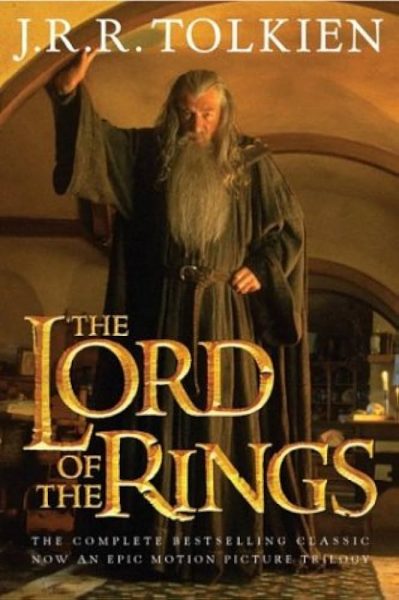 One Ring to rule them all, One Ring to find them, One Ring to bring them all and in the darkness bind them.
One Ring to rule them all, One Ring to find them, One Ring to bring them all and in the darkness bind them.
In ancient times the Rings of Power were crafted by the Elven-smiths, and Sauron, the Dark Lord, forged the One Ring, filling it with his own power so that he could rule all others. But the One Ring was taken from him, and though he sought it throughout Middle-earth, it remained lost to him. After many ages it fell by chance into the hands of the hobbit Bilbo Baggins.
From Sauron’s fastness in the Dark Tower of Mordor, his power spread far and wide. Sauron gathered all the Great Rings to him, but always he searched for the One Ring that would complete his dominion.
When Bilbo reached his eleventy-first birthday he disappeared, bequeathing to his young cousin Frodo the Ruling Ring and a perilous quest: to journey across Middle-earth, deep into the shadow of the Dark Lord, and destroy the Ring by casting it into the Cracks of Doom.
The Lord of the Rings tells of the great quest undertaken by Frodo and the Fellowship of the Ring: Gandalf the Wizard; the hobbits Merry, Pippin, and Sam; Gimli the Dwarf; Legolas the Elf; Boromir of Gondor; and a tall, mysterious stranger called Strider.
The Stand, by Stephen King (Adapted in 1994 and 2020)
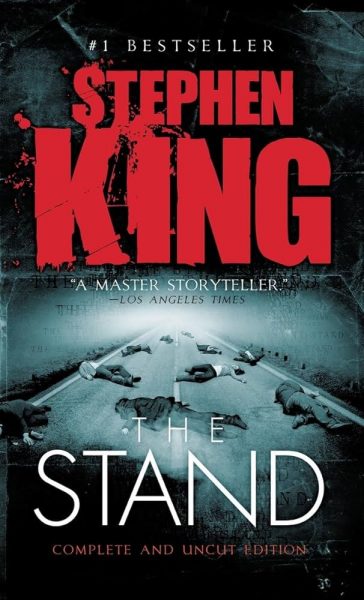 A patient escapes from a biological testing facility, unknowingly carrying a deadly weapon: a mutated strain of super-flu that will wipe out 99 percent of the world’s population within a few weeks. Those who remain are scared, bewildered, and in need of a leader. Two emerge—Mother Abagail, the benevolent 108-year-old woman who urges them to build a peaceful community in Boulder, Colorado; and Randall Flagg, the nefarious “Dark Man,” who delights in chaos and violence. As the dark man and the peaceful woman gather power, the survivors will have to choose between them—and ultimately decide the fate of all humanity.
A patient escapes from a biological testing facility, unknowingly carrying a deadly weapon: a mutated strain of super-flu that will wipe out 99 percent of the world’s population within a few weeks. Those who remain are scared, bewildered, and in need of a leader. Two emerge—Mother Abagail, the benevolent 108-year-old woman who urges them to build a peaceful community in Boulder, Colorado; and Randall Flagg, the nefarious “Dark Man,” who delights in chaos and violence. As the dark man and the peaceful woman gather power, the survivors will have to choose between them—and ultimately decide the fate of all humanity.
Dune Parts 1 and 2, by Frank Herbert (Adapted in 1984 and 2021/2024) (Part 3 also available)
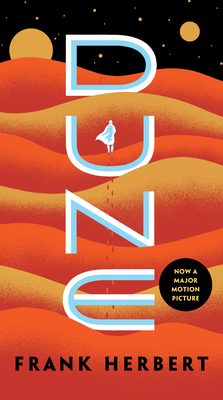 Set on the desert planet Arrakis, Dune is the story of Paul Atreides, heir to a noble family tasked with ruling an inhospitable world where the only thing of value is the “spice” melange, a drug capable of extending life and enhancing consciousness. Coveted across the known universe, melange is a prize worth killing for…When House Atreides is betrayed, the destruction of Paul’s family will set the boy on a journey toward a destiny greater than he could ever have imagined. And as he evolves into the mysterious man known as Muad’Dib, he will bring to fruition humankind’s most ancient and unattainable dream. A stunning blend of adventure and mysticism, environmentalism and politics, Dune won the first Nebula Award, shared the Hugo Award, and formed the basis of what is undoubtedly the grandest epic in science fiction.
Set on the desert planet Arrakis, Dune is the story of Paul Atreides, heir to a noble family tasked with ruling an inhospitable world where the only thing of value is the “spice” melange, a drug capable of extending life and enhancing consciousness. Coveted across the known universe, melange is a prize worth killing for…When House Atreides is betrayed, the destruction of Paul’s family will set the boy on a journey toward a destiny greater than he could ever have imagined. And as he evolves into the mysterious man known as Muad’Dib, he will bring to fruition humankind’s most ancient and unattainable dream. A stunning blend of adventure and mysticism, environmentalism and politics, Dune won the first Nebula Award, shared the Hugo Award, and formed the basis of what is undoubtedly the grandest epic in science fiction.
Dune Messiah continues the story of Paul Atreides, better know—and feared—as the the man called Muad’Dib. As Emperor of the known universe, Paul possesses more power than a single man was ever meant to wield. Worshipped as a religious icon by the fanatical Fremen, Paul faces the enmity of the political houses he displaced when he assumed the throne—and a conspiracy conducted within his own sphere of influence. And even as House Atreides begins to crumble around him from the machinations of his enemies, the true threat to Paul comes to his lover, Chani, and the unborn heir to his family’s dynasty….
Deliverance, by James Dickey (Adapted in 1972)
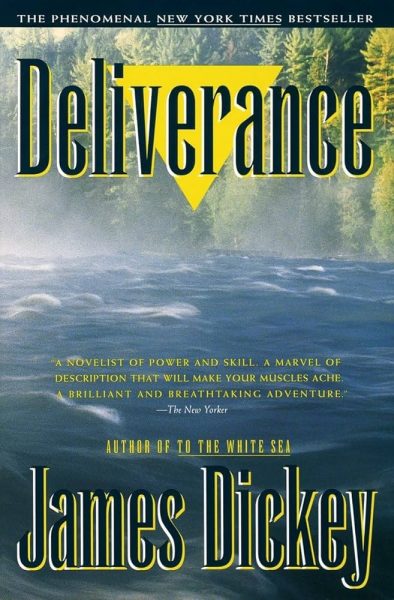 Four middle-class suburban men decide to embark on a three-day canoe trip down a particularly wild section of a river in Georgia. For Ed Gentry, Bobby Trippe, Drew Ballinger, and Lewis Medlock, the trip represents a break from their daily routines, a chance for adventure with few real risks, and the last occasion to see a beautiful valley before the river is dammed up. Lewis, an enthusiastic outdoorsman and champion archer, is obsessed by the desire to pit himself against nature.
Four middle-class suburban men decide to embark on a three-day canoe trip down a particularly wild section of a river in Georgia. For Ed Gentry, Bobby Trippe, Drew Ballinger, and Lewis Medlock, the trip represents a break from their daily routines, a chance for adventure with few real risks, and the last occasion to see a beautiful valley before the river is dammed up. Lewis, an enthusiastic outdoorsman and champion archer, is obsessed by the desire to pit himself against nature.
When two of the friends are viciously attacked by mountain men, their mild adventure becomes a fight for their very lives. Men prey upon one another, the treacherous river becomes a graveyard for those without the strength or the luck to survive, and Ed, forced to lead his friends to safety, calls upon primal instincts buried within him to achieve deliverance.
The Lost City of Z, by David Grann (Adapted in 2016)
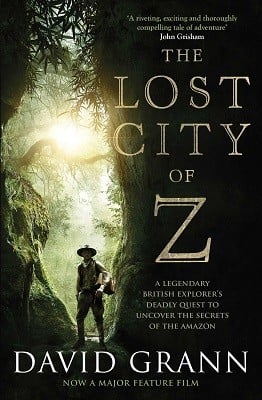 Fawcett was among the last of a legendary breed of British explorers. For years he explored the Amazon and came to believe that its jungle concealed a large, complex civilization, like El Dorado. Obsessed with its discovery, he christened it the City of Z. In 1925, Fawcett headed into the wilderness with his son Jack, vowing to make history. They vanished without a trace. For the next eighty years, hordes of explorers plunged into the jungle, trying to find evidence of Fawcett’s party or Z. Some died from disease and starvation; others simply disappeared. In this spellbinding true tale of lethal obsession, David Grann retraces the footsteps of Fawcett and his followers as he unravels one of the greatest mysteries of exploration.
Fawcett was among the last of a legendary breed of British explorers. For years he explored the Amazon and came to believe that its jungle concealed a large, complex civilization, like El Dorado. Obsessed with its discovery, he christened it the City of Z. In 1925, Fawcett headed into the wilderness with his son Jack, vowing to make history. They vanished without a trace. For the next eighty years, hordes of explorers plunged into the jungle, trying to find evidence of Fawcett’s party or Z. Some died from disease and starvation; others simply disappeared. In this spellbinding true tale of lethal obsession, David Grann retraces the footsteps of Fawcett and his followers as he unravels one of the greatest mysteries of exploration.
Killers of the Flower Moon: The Osage Murders and the Birth of the FBI, by David Grann (Adapted in 2023)
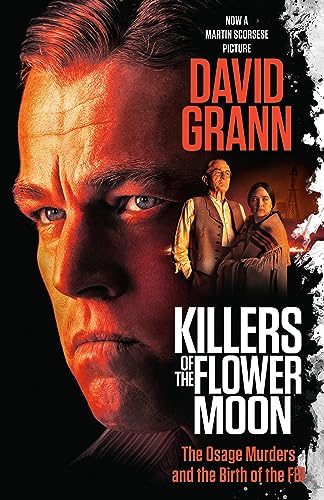 In the 1920s, the richest people per capita in the world were members of the Osage Nation in Oklahoma. After oil was discovered beneath their land, the Osage rode in chauffeured automobiles, built mansions, and sent their children to study in Europe.
In the 1920s, the richest people per capita in the world were members of the Osage Nation in Oklahoma. After oil was discovered beneath their land, the Osage rode in chauffeured automobiles, built mansions, and sent their children to study in Europe.
Then, one by one, the Osage began to be killed off. The family of an Osage woman, Mollie Burkhart, became a prime target. One of her relatives was shot. Another was poisoned. And it was just the beginning, as more and more Osage were dying under mysterious circumstances, and many of those who dared to investigate the killings were themselves murdered.
As the death toll rose, the newly created FBI took up the case, and the young director, J. Edgar Hoover, turned to a former Texas Ranger named Tom White to try to unravel the mystery. White put together an undercover team, including a Native American agent who infiltrated the region, and together with the Osage began to expose one of the most chilling conspiracies in American history.
Cloud Atlas, by David Mitchell (Adapted in 2012)
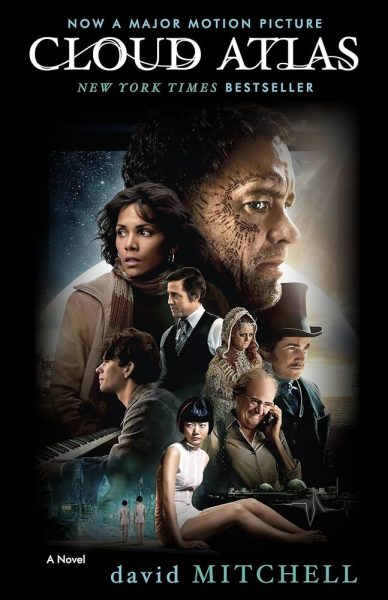 Cloud Atlas begins in 1850 with Adam Ewing, an American notary voyaging from the Chatham Isles to his home in California. Along the way, Ewing is befriended by a physician, Dr. Goose, who begins to treat him for a rare species of brain parasite. . . . Abruptly, the action jumps to Belgium in 1931, where Robert Frobisher, a disinherited bisexual composer, contrives his way into the household of an infirm maestro who has a beguiling wife and a nubile daughter. . . . From there we jump to the West Coast in the 1970s and a troubled reporter named Luisa Rey, who stumbles upon a web of corporate greed and murder that threatens to claim her life. . . . And onward, with dazzling virtuosity, to an inglorious present-day England; to a Korean superstate of the near future where neocapitalism has run amok; and, finally, to a postapocalyptic Iron Age Hawaii in the last days of history.
Cloud Atlas begins in 1850 with Adam Ewing, an American notary voyaging from the Chatham Isles to his home in California. Along the way, Ewing is befriended by a physician, Dr. Goose, who begins to treat him for a rare species of brain parasite. . . . Abruptly, the action jumps to Belgium in 1931, where Robert Frobisher, a disinherited bisexual composer, contrives his way into the household of an infirm maestro who has a beguiling wife and a nubile daughter. . . . From there we jump to the West Coast in the 1970s and a troubled reporter named Luisa Rey, who stumbles upon a web of corporate greed and murder that threatens to claim her life. . . . And onward, with dazzling virtuosity, to an inglorious present-day England; to a Korean superstate of the near future where neocapitalism has run amok; and, finally, to a postapocalyptic Iron Age Hawaii in the last days of history.
But the story doesn’t end even there. The narrative then boomerangs back through centuries and space, returning by the same route, in reverse, to its starting point. Along the way, Mitchell reveals how his disparate characters connect, how their fates intertwine, and how their souls drift across time like clouds across the sky.
As wild as a videogame, as mysterious as a Zen koan, Cloud Atlas is an unforgettable tour de force that, like its incomparable author, has transcended its cult classic status to become a worldwide phenomenon.
American Psycho, by Bret Easton Ellis (Adapted in 2000)
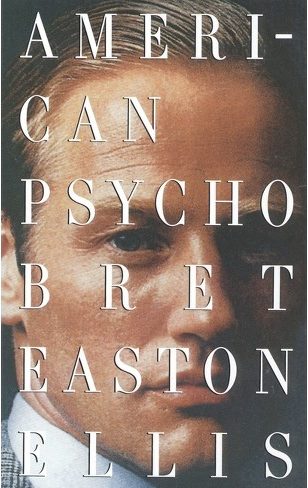 In this modern classic, the acclaimed author of The Shards explores the incomprehensible depths of madness and captures the insanity of violence in our time or any other.
In this modern classic, the acclaimed author of The Shards explores the incomprehensible depths of madness and captures the insanity of violence in our time or any other.
Patrick Bateman moves among the young and trendy in 1980s Manhattan. Young, handsome, and well educated, Bateman earns his fortune on Wall Street by day while spending his nights in ways we cannot begin to fathom. Expressing his true self through torture and murder, Bateman prefigures an apocalyptic horror that no society could bear to confront.
Twelve Years a Slave, by Solomon Northup (Adapted in 2013)
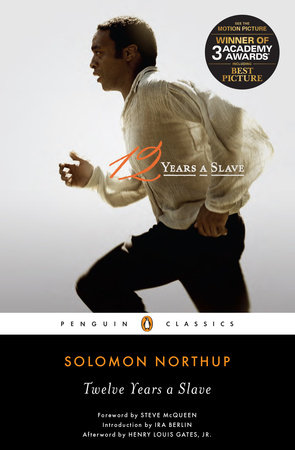 Perhaps the best written of all the slave narratives, Twelve Years a Slave is a harrowing memoir about one of the darkest periods in American history. It recounts how Solomon Northup, born a free man in New York, was lured to Washington, D.C., in 1841 with the promise of fast money, then drugged and beaten and sold into slavery. He spent the next twelve years of his life in captivity on a Louisiana cotton plantation.
Perhaps the best written of all the slave narratives, Twelve Years a Slave is a harrowing memoir about one of the darkest periods in American history. It recounts how Solomon Northup, born a free man in New York, was lured to Washington, D.C., in 1841 with the promise of fast money, then drugged and beaten and sold into slavery. He spent the next twelve years of his life in captivity on a Louisiana cotton plantation.
After his rescue, Northup published this exceptionally vivid and detailed account of slave life. It became an immediate bestseller and today is recognized for its unusual insight and eloquence as one of the very few portraits of American slavery produced by someone as educated as Solomon Northup, or by someone with the dual perspective of having been both a free man and a slave.
For more than seventy years, Penguin has been the leading publisher of classic literature in the English-speaking world. With more than 1,700 titles, Penguin Classics represents a global bookshelf of the best works throughout history and across genres and disciplines. Readers trust the series to provide authoritative texts enhanced by introductions and notes by distinguished scholars and contemporary authors, as well as up-to-date translations by award-winning translators.
Battle Royale: Remastered (Adapted in 2000)
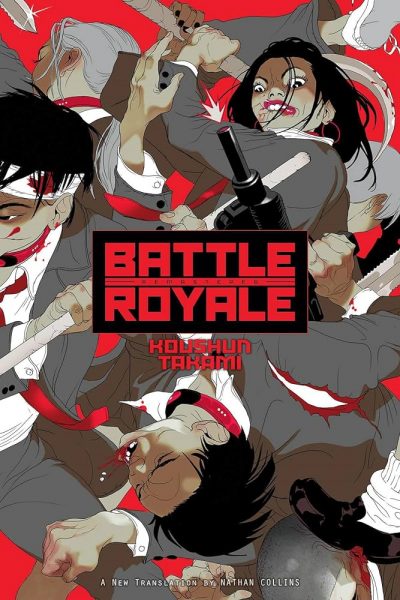 Battle Royale is a high-octane thriller about senseless youth violence, and one of Japan’s bestselling – and most controversial – novels. As part of a ruthless program by the totalitarian government, a group of high school students are taken to a small isolated island with a map, food, and various weapons. Forced to wear special collars that explode when they break a rule, they must fight each other for three days until only one remains.
Battle Royale is a high-octane thriller about senseless youth violence, and one of Japan’s bestselling – and most controversial – novels. As part of a ruthless program by the totalitarian government, a group of high school students are taken to a small isolated island with a map, food, and various weapons. Forced to wear special collars that explode when they break a rule, they must fight each other for three days until only one remains.
Wuthering Heights, by Emily Brontë (Numerous adaptations: 1939, 1970, 2011…)
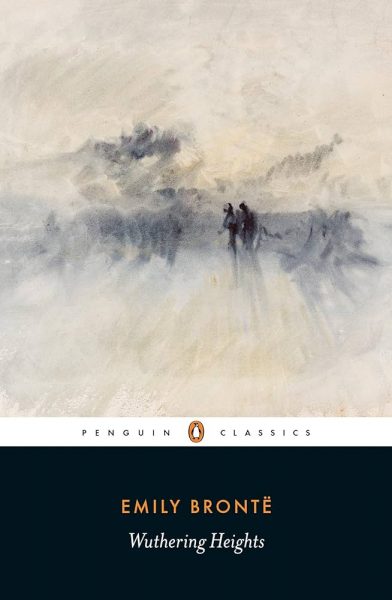 One of English literature’s classic masterpieces—a gripping novel of love, propriety, and tragedy.
One of English literature’s classic masterpieces—a gripping novel of love, propriety, and tragedy.
Lockwood, the new tenant of Thrushcross Grange, situated on the bleak Yorkshire moors, is forced to seek shelter one night at Wuthering Heights, the home of his landlord. There he discovers the history of the tempestuous events that took place years before. What unfolds is the tale of the intense love between the gypsy foundling Heathcliff and Catherine Earnshaw. Catherine, forced to choose between passionate, tortured Heathcliff and gentle, well-bred Edgar Linton, surrendered to the expectations of her class. As Heathcliff’s bitterness and vengeance at his betrayal is visited upon the next generation, their innocent heirs must struggle to escape the legacy of the past.
Bonus and not yet adapted for the screen, but an interesting surrealist tome on film and adaptations:
Antkind, by Charlie Kaufman (the director)
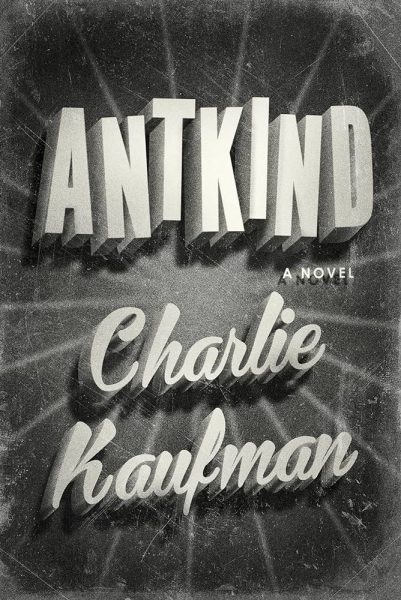 B. Rosenberger Rosenberg, neurotic and underappreciated film critic (failed academic, filmmaker, paramour, shoe salesman who sleeps in a sock drawer), stumbles upon a hitherto unseen film by an enigmatic outsider–a film he’s convinced will change his career trajectory and rock the world of cinema to its core. His hands on what is possibly the greatest movie ever made, a three-month-long stop-motion masterpiece that took its reclusive auteur ninety years to complete, B. knows that it is his mission to show it to the rest of humanity. The only problem: The film is destroyed, leaving him the sole witness to its inadvertently ephemeral genius. All that’s left of this work of art is a single frame from which B. must somehow attempt to recall the film that just might be the last great hope of civilization. Thus begins a mind-boggling journey through the hilarious nightmarescape of a psyche as lushly Kafkaesque as it is atrophied by the relentless spew of Twitter. Desperate to impose order on an increasingly nonsensical existence, trapped in a self-imposed prison of aspirational victimhood and degeneratively inclusive language, B. scrambles to re-create the lost masterwork while attempting to keep pace with an ever-fracturing culture of “likes” and arbitrary denunciations that are simultaneously his bête noire and his raison d’être. A searing indictment of the modern world, Antkind is a richly layered meditation on art, time, memory, identity, comedy, and the very nature of existence itself–the grain of truth at the heart of every joke.
B. Rosenberger Rosenberg, neurotic and underappreciated film critic (failed academic, filmmaker, paramour, shoe salesman who sleeps in a sock drawer), stumbles upon a hitherto unseen film by an enigmatic outsider–a film he’s convinced will change his career trajectory and rock the world of cinema to its core. His hands on what is possibly the greatest movie ever made, a three-month-long stop-motion masterpiece that took its reclusive auteur ninety years to complete, B. knows that it is his mission to show it to the rest of humanity. The only problem: The film is destroyed, leaving him the sole witness to its inadvertently ephemeral genius. All that’s left of this work of art is a single frame from which B. must somehow attempt to recall the film that just might be the last great hope of civilization. Thus begins a mind-boggling journey through the hilarious nightmarescape of a psyche as lushly Kafkaesque as it is atrophied by the relentless spew of Twitter. Desperate to impose order on an increasingly nonsensical existence, trapped in a self-imposed prison of aspirational victimhood and degeneratively inclusive language, B. scrambles to re-create the lost masterwork while attempting to keep pace with an ever-fracturing culture of “likes” and arbitrary denunciations that are simultaneously his bête noire and his raison d’être. A searing indictment of the modern world, Antkind is a richly layered meditation on art, time, memory, identity, comedy, and the very nature of existence itself–the grain of truth at the heart of every joke.
*
Book descriptions are from the publisher or Goodreads. Book club sets are circulated to participating libraries via the CLiC courier. If you are interested in receiving book club sets but are not already a member library, use the online form to get signed up. We are grateful to all of the organizations and individuals that have donated sets and helped make the collection stronger for Colorado’s people. Please contact bookclub@coloradovirtuallibrary.org for questions or to discuss donations. We also welcome all suggestions of titles to include in the collection.
- The Secret Lives of Book Club Sets - June 12, 2025
- Book Clubs Can Be Prideful - June 5, 2025
- Fast Facts – Kits and Book Club Sets - May 7, 2025